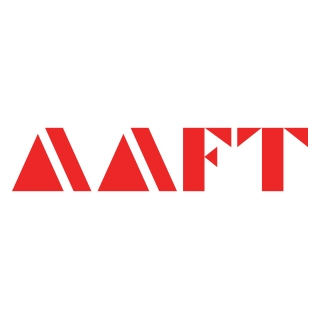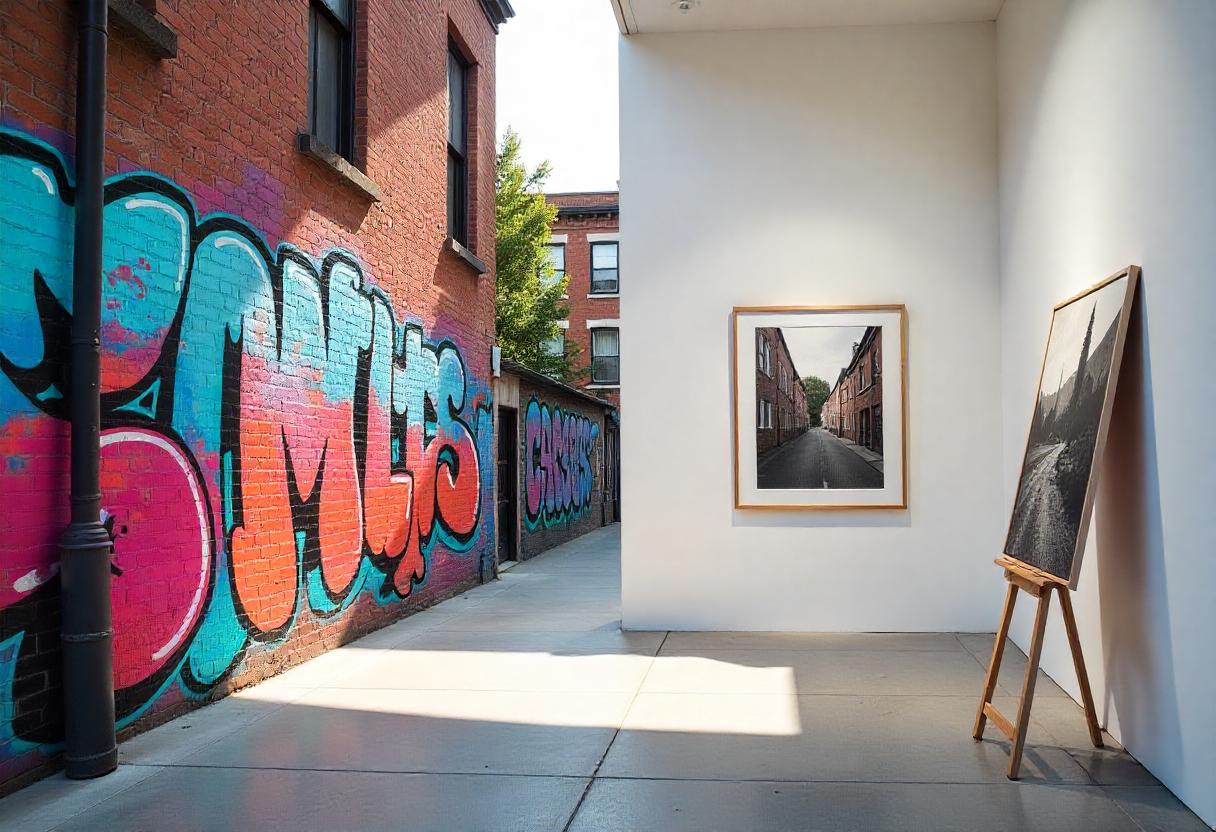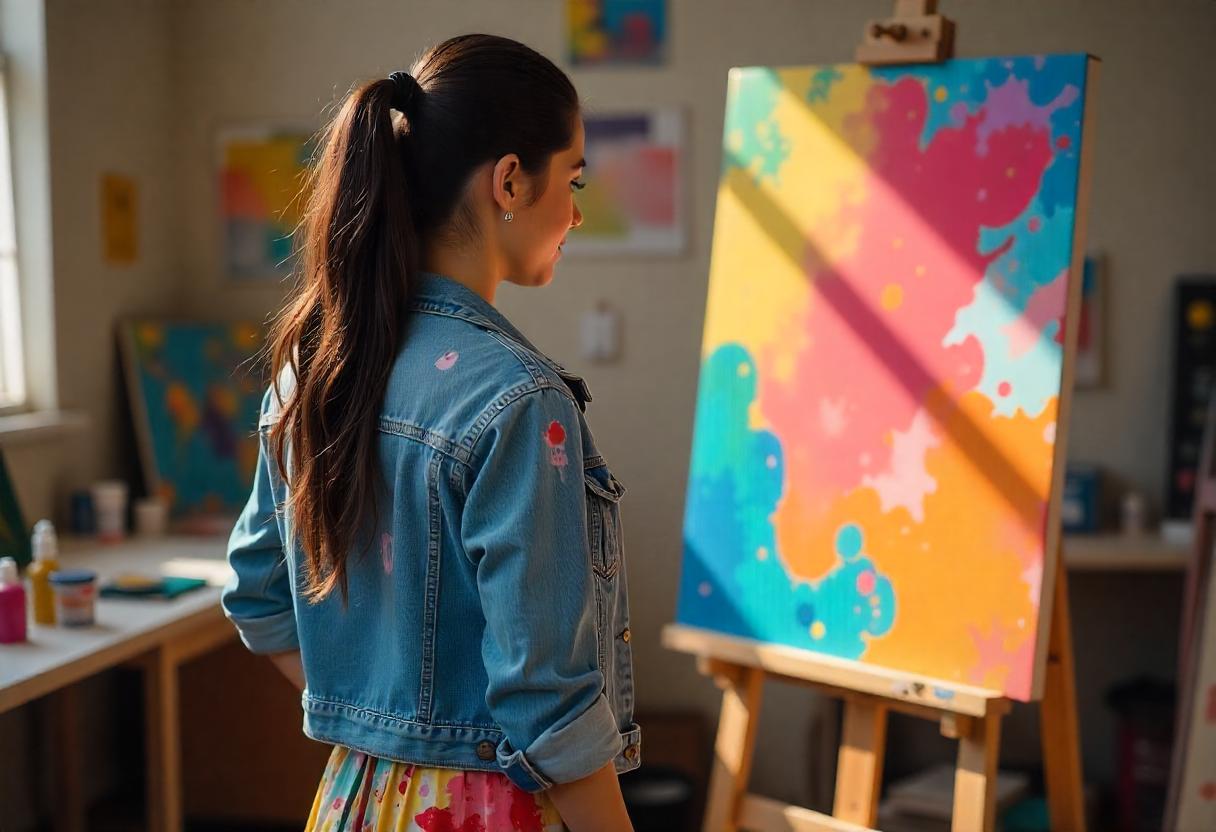Why a Fine Arts Course is Essential for Aspiring Artists?
Individuals who want to pursue fine arts careers often find themselves in confusion about whether to pursue a career in fine arts or to start the journey independently. While self-work and practice play a huge role in an artist’s development, a structured course can help a budding artist grow in multiple ways and make the path less overwhelming. A fine arts course offers many benefits that can shape a budding artist’s career. A fine arts course equips students with the tools and skills needed to build a successful career in the ever-evolving industry. Here are some of the reasons to enroll in a fine arts program.
Technical Mastery and Skill Development
Individuals can develop and refine their technical skills under the guidance of experienced instructors. A fine art course typically covers a wide range of mediums and techniques, from drawing and painting to sculpture and digital art. Exploring various forms of artistic expression allows students to discover their own unique artistic style.
The structured course allows students to have systematic training and enables them to build a solid foundation for themselves. Techniques such as shading, perspective, and color theory are taught in a methodical manner, allowing students to achieve a level of proficiency that might be difficult to attain through self-study alone. Also, students are provided with labs and studios equipped with all the required materials and tools.
Read Also: Why a Fine Arts Degree is More Than Just Painting Pictures
Conceptual and Critical Thinking
Do you want free career counseling?
Ignite Your Ambitions- Seize the Opportunity for a Free Career Counseling Session.
- 30+ Years in Education
- 250+ Faculties
- 30K+ Alumni Network
- 10th in World Ranking
- 1000+ Celebrity
- 120+ Countries Students Enrolled
A fine arts course emphasizes the importance of conceptual and critical thinking. Aspiring artists are encouraged to explore various techniques and push their boundaries. Students also learn to analyze their work and implement feedback through assignments, critiques, and discussions.
Fine arts course also helps students broaden their knowledge and understanding of art through the study of historical events and cultural concepts. Artists visualize and create art with deeper meaning when they have the knowledge.
Networking and Professional Opportunities
Art is as much about connections as talent. Fine arts programs provide excellent networking possibilities for career success. Peers, instructors, and visiting artists form a vibrant community where ideas and partnerships flourish. Beyond the classroom, these partnerships encourage and inspire artists throughout their careers.
Book Now →
Portfolio preparation, exhibitions, and internships are all common in fine arts schools. These experiences boost a student’s résumé and offer an insight into professional art. Presenting work, navigating galleries, and engaging with clients are key abilities that can shape an artist’s career.
Access to Resources and Facilities
To be able to access resources and facilities that might otherwise be out of reach is one of the biggest advantages of a fine arts course. Art schools and universities often boast extensive libraries, galleries, and digital resources that enrich the learning experience. Additionally, they are provided with materials from printmaking presses to digital editing software. With this, the artist’s mind is relieved of the heavy burden of high cost.
Access to these resources allows artists to experiment and create without the lack of materials.
Do you want free career counseling?
Ignite Your Ambitions- Seize the Opportunity for a Free Career Counseling Session.Read Also: Beyond the Lines: Exploring Creativity and Expression in Fine Arts
Regular visits to galleries, museums, and art fairs are often integrated into the curriculum, providing students with first-hand exposure to diverse art forms and practices. These experiences broaden an artist’s horizon and inspire them to explore their creativity and make better art forms.
Mentorship and Personalized Guidance
Mentorship by experienced professors is a major benefit of fine arts classes. Mentors help students traverse their artistic journey with personalized advice. Veteran experts can offer constructive criticism and new ideas. This mentorship helps students create a unified and compelling body of work.
Instructors model professional artistry. Their achievements and failures can inform a student’s career path. Mentor-student relationships often last beyond the course, offering continuous support and encouragement.
Structured Environment and Discipline
A structured course and class format instill discipline and a strong work ethic, which are essential for artistic success. Regular assignments and deadlines create a framework that encourages consistent practice and improvement. The discipline that is instilled in the students at this point is crucial for developing the perseverance needed to overcome creative challenges and navigate a consistent artistic career.
Read Also: A Beginner’s Guide to Understanding Fine Art as a Field
A structured environment fosters a sense of community and collaboration. Group projects and peer critiques encourage students to work together, share ideas, and support each other’s growth. The students build a network of like-minded individuals that enhance their learning experiences and also build a network for future support and inspiration.
Cultivating a Unique Artistic Voice
Technical abilities and academic knowledge are important, but a fine arts course’s main purpose is to help students find their artistic voice. Exploration and experimenting help students find their style and themes. Instructors help students explore their creativity and create a unique body of work.
Finding one’s artistic voice is personal and difficult. Fine arts classes allow students to experiment, fail, and learn. Technical training, conceptual development, and critical criticism enable students to express their vision and create meaningful art.
Conclusion
A fine arts course can offer an artist comprehensive knowledge that extends far beyond technical proficiency. The course provides the students with the tools and support necessary to develop a successful and fulfilling career in the field of arts. The course allows students to connect to like-minded individuals who can help them to build lifelong support. One of the main benefits of doing a fine arts course is having the opportunity to learn and develop various art forms that can allow the artists to develop their unique style and art form. For any aspiring artist, doing a fine arts course will be very beneficial If you are interested in taking a fine arts course, Explore the courses by AAFT, School of Fine Arts. The institute aims at providing the students with the best techniques, tools, and guidance to excel in the industry.

AAFT has been providing the world with limitless creativity and expression since 1993! Through a dynamic and industry-driven curriculum, AAFT provides engaging and captivating articles to persuasive blogs and empowers its readers to explore diverse avenues of creative media education-related content.






